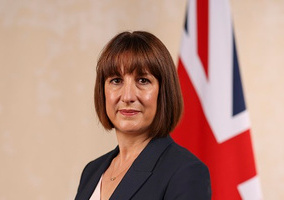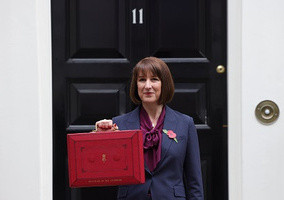More than one-third of charity retailers will be forced to cut paid staff, reduce their hours, or both, due to the employer national insurance contributions (NICs) rise announced recently by chancellor Rachel Reeves.
Those are among the key findings of a survey by trade body the Charity Retail Association (CRA), which concluded that shops will be “severely impacted” by the NICs hike.
Just over a quarter of the 52 respondents to the CRA survey said they will have to close shops after the rise comes into force next year, while two-thirds said they will have to put up prices.
Among the other measures charities are now looking at, two in five told the survey they will have to scale back plans to open new shops, while one in five said they would reduce trading hours.
Fewer than one in 10 of the charity retailers that answered the CRA’s survey said they would not have to take action in the wake of the NICs rise.
The CRA estimates that the NICs rise will cost charity retailers an extra £20m overall, including payments for delivery, collection and head office staff.
It forecasts that the increase will cost a typical charity shop around £1,000 each year.
“Some of this cost will be recouped through higher prices, but ultimately the result will be less money raised to support charitable services,” said Robin Osterley, CRA’s chief executive.
Government urged to mitigate impact
Reeves announced in her first budget, in October, that employer NICs will increase from 13.8% to 15% from April 2025, and later confirmed there would be no exemptions or reimbursements based on charitable status.
An open letter signed in November by more than 7,300 charities and voluntary organisations warned that charities overall will face increased costs of £1.4bn and asked for the government to reconsider.
The government has claimed it has been left with a £22bn “black hole” in public finances by the previous Conservative administration, which it must address.
Osterley said he was “of course aware that the government is facing some extremely difficult choices” as it seeks to balance the books.
“But it seems a shame that raising money by impacting charities, and specifically charity shops, should be part of their thinking,” he added.
“Our survey shows that charity shops, which form such a hugely important part of the circular economy and which provide an invaluable source of inexpensive goods for hard-pressed households, will be severely impacted by these changes,” Osterley said. “We are calling on the government to take steps to mitigate this.”
Major retailers concerned by tax rise
Nick Smith, retail director at Age UK, said: “As a member of the Charity Retail Association we, like our fellow workers across the sector, are disappointed by the decision to increase NICs alongside [minimum wage rises] next year.
“Age UK’s charity shops help raise vital funds for our work supporting the needs of older people across the country and these increases will put pressure on our ability to do that.”
Andrew Vale, managing director of commercial income at Mind, said: “We are deeply concerned about the impact that the increase in employers’ national insurance contributions will have on our retail network.
“A large proportion of our income – £6.5m last year – comes from our shops, and they are embedded in the heart of local communities across England and Wales, providing jobs and volunteering opportunities to so many people.
“Across the Mind federation, including our network of shops, the implications of the NICs rise is eye-watering, at a time when we are trying to direct every penny towards delivering the best support.
“We will be working hard to manage these rises and make sure our shops remain profitable. We will be doing everything we can to avoid raising prices or cutting staff hours.
“As not-for-profit organisations we are asking for the government to reconsider the implications for us, and ultimately our ability to support our population’s mental health.”
A Sue Ryder spokesperson said: “An increase in employers’ national insurance contributions would add another financial pressure to us, as a charity, and therefore to the vital care that we provide.
“We urge the government to consider this impact on the voluntary sector as a whole, and to consider using the vital funds the move will create to support the hospice care sector with more sustainable funding.”
A Treasury spokesperson said: “Our tax regime for charities, including exemption from paying business rates, is among the most generous of anywhere in the world – with tax reliefs for charities and their donors worth just over £6bn for the tax year to April 2024.
“We have protected small charities and businesses by more than doubling the employment allowance to £10,500, meaning more than half of them with NICs liabilities either gain or see no change next year.
“Charities will still be able to claim employer NICs reliefs, including where eligible and are still exempt from business rates.”
Related articles












